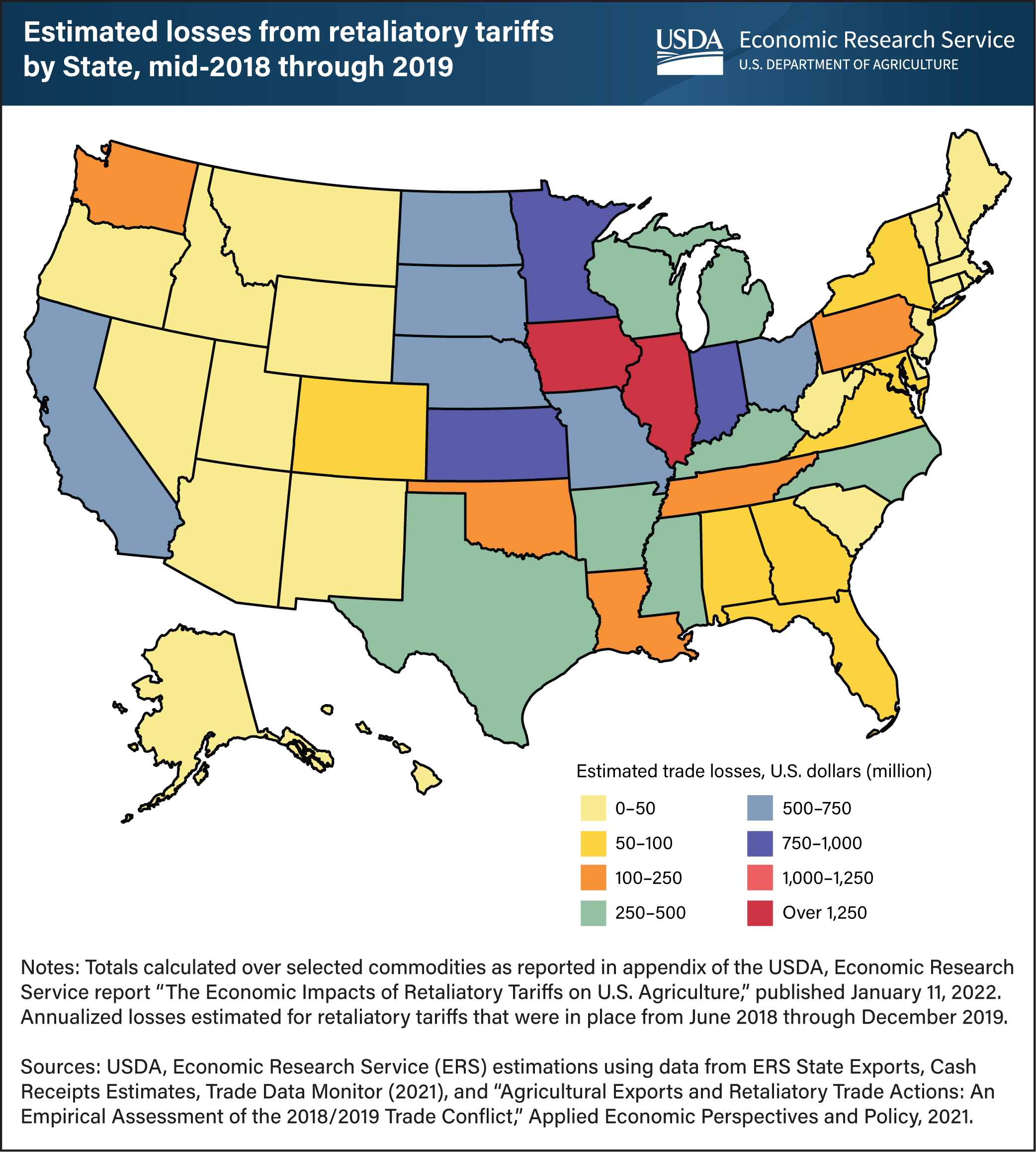Retaliatory tariffs reduced U.S. agricultural exports annually by $13.2 billion; impacts were concentrated in Midwestern States
- by Stephen Morgan
- 1/24/2022

In 2018, six U.S. trading partners—Canada, China, the European Union, India, Mexico, and Turkey—announced retaliatory tariffs affecting agricultural and food products. The agricultural products targeted for retaliation were valued at $30.4 billion in 2017, with individual product lines experiencing tariff increases ranging from 2 to 140 percent. USDA’s Economic Research Service (ERS) estimated trade losses from retaliatory tariffs by State and commodity using data in the ERS State Exports, Cash Receipts Estimates. Estimated annualized losses from mid-2018 through the end of 2019 totaled $13.2 billion across 17 commodity groups, led by soybeans, sorghum, and pork. While retaliatory tariffs affected all States, those in the Midwest experienced the largest losses. ERS researchers estimated Iowa lost $1.46 billion; Illinois, $1.41 billion; and Kansas, $955 million, all on an annualized basis. Iowa and Illinois, which together produce 25 to 30 percent of U.S. soybeans, both experienced trade losses in excess of $1 billion for soybeans alone. The retaliatory tariffs followed the issuance of U.S. tariffs on imports of steel and aluminum from major trading partners and on a broad range of imports from China. This chart can be found in the ERS report, The Economic Impacts of Retaliatory Tariffs on U.S. Agriculture, published in January 2022.
We’d welcome your feedback!
Would you be willing to answer a few quick questions about your experience?

